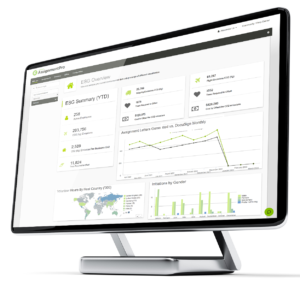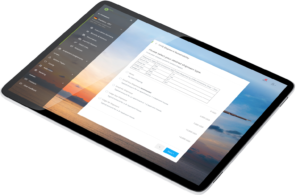Businesses of all kinds today must demonstrate accountability for the environmental and social impact of their activities, along with the perennial corporate goals of pleasing customers and shareholders, and pushing for growth.
With its role in facilitating business travel and relocating workers into new positions – activities which are, more often than not, driven by efforts to grow business – global mobility as a function can play its part in a company’s sustainability efforts.
The United Nations (UN) defines sustainability as “meeting the needs of the present without compromising the ability of future generations to meet their own needs”. This includes the concept of a future where the needs of people and the natural world are advanced. It also means recognizing that many aspects of development and business are interconnected, and understanding that you can’t help people without safeguarding or improving the environment in which they live.
The UN has set out 17 sustainable goals covering climate action, life on land and water, poverty, gender equality, and decent work and economic growth.
Once your organization has defined sustainability for itself, it can set goals around improving its environmental and social impact. Global mobility teams can then begin to adopt new ways of working and, using the right technology, contribute towards those goals. Here are a few ways mobility can help make your organization more sustainable.

REVIEW CARBON IMPACT OF TRAVEL AND MOVES
Rethinking corporate travel and move policies is a good place to start increasing and promoting more sustainable working practices. Mobility teams should consider if moves or trips are truly necessary, and assess how they fit with corporate carbon goals.
When travel is essential, mobility teams can measure the carbon footprint generated, and offset the emissions by purchasing carbon credits that fund various environmental initiatives, such as planting trees. When managing moves, global mobility can also encourage staff to minimize the number of items they ship for assignments – for instance, by offering to donate to their chosen charity if they make a sustainable choice.
Equus Software’s AssignmentPro global mobility platform supports this approach through a range of core-flex options that give employees control over their assignments. For instance, it makes it easy for workers to reduce their shipping allowance and purchase carbon credits with that money instead. Employees can make decisions on their benefits based on the carbon impact.

GO PAPERLESS
Your global mobility program can contribute by reducing its use of paper. Sharing compensation packages, cost estimates and policy and procedures documents electronically is a good start. Teams can also use e-signatures and ask vendors to switch from paper invoices to digital versions.
AssignmentPro provides a single, secure system for digitally managing, sharing and signing the paperwork necessary to manage your global workforce, including assignment letters, compensation statements and supplier and employee communications.

CHOOSE GREEN VENDORS
When arranging the shipping and storage of household goods for employee moves, global mobility teams can choose vendors that use sustainable packaging, for example, or drive hybrid vehicles and operate storage facilities with energy-efficient lighting and heating.
Mobility teams can also communicate their corporate sustainability goals to vendors and encourage them to move in the same direction. One way to do this is by requesting vendors meet KPIs for their activities as part of vendor reviews, or even as conditions for continuing the relationship.
The Equus Ecosystem supports mobility teams in making smart decisions about which vendors to work with by allowing them to access real-time data on suppliers’ environmental credentials.
SOCIAL CONSIDERATIONS
Global mobility teams can take action on the social elements of sustainability too. One way is to consider the impact of assignments on people living and working in destination countries.
For example, teams can evaluate assignments from the perspective of the local community, provide relevant training to local people and create opportunities for employees working abroad to get involved with community initiatives.

You can make information about these social and community initiatives visible to employees via the Mobile Employee Experience – a single place to share all the details related to the assignment. Employees can select benefits, sign e-signature letters and more.
You can also use AssignmentPro’s reporting capabilities to create visual representations of the impact these changes in your program are having on your sustainability goals.
Reducing carbon footprints and increasing inclusivity are long-term goals for businesses around the world. By starting small and changing ways of working today, global mobility teams can begin to contribute to making corporate activities more sustainable for generations to come.
Find out how Equus Software’s AssignmentPro can help your global mobility team meet your corporate sustainability goals today.













